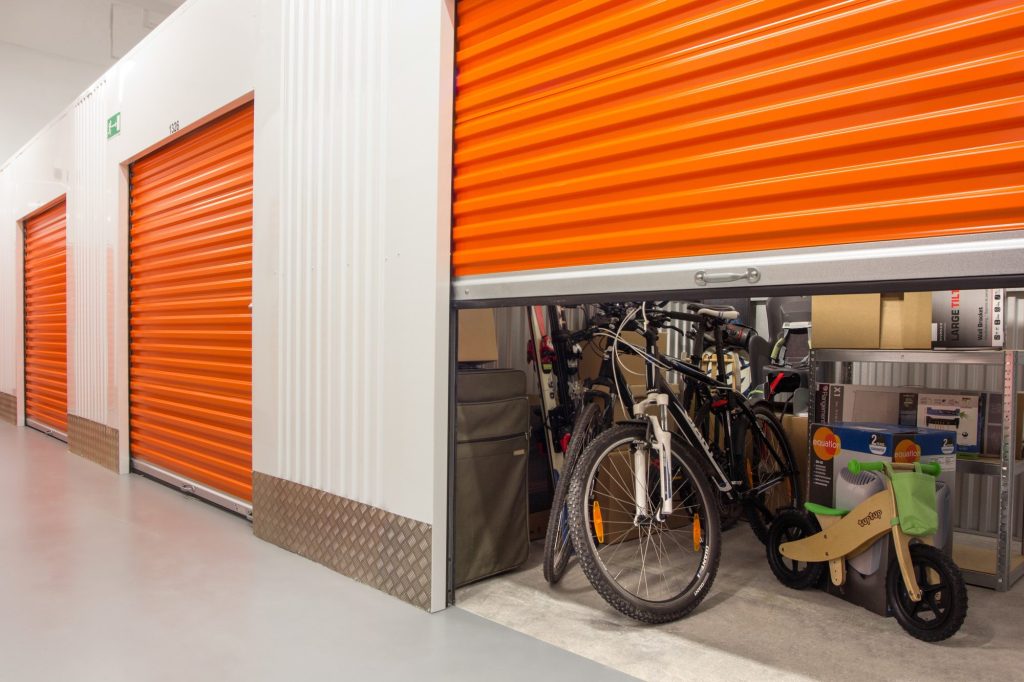
Insurance premiums take a chunk out of your wallet over time. But they pale in comparison to the loss you’d suffer for being uninsured in the event of an accident or theft. Insurance is worth the price, especially as certain types are required by law.
Insurance premiums, however, are not set in stone. You can reduce your payments in a number of ways while still benefitting from the safety net. Most of them revolve around reducing your risk to the insurer, but there are some other policy loop-holes that you may not even be aware of. Let’s take a look at some important insurance types, and what you can do to get yourself a better deal.
Car Insurance
- Get your details in order
The following information affects your insurance premiums:
- Your job
- Your mileage
The objective is not to manipulate this information to suit your ends, but rather to be as accurate as possible. While it’s true that lower mileage per year will result in a lower insurance premium, deliberately misrepresenting your mileage will result in harsh penalties, so it’s not worth the risk.
On the other hand, being precise about your job description can be beneficial. For example, according to Moneywise.co.uk, a restaurateur would pay £800 on their premiums while a café owner would pay £707. So if you run a café and you’re wondering what’s the difference between writing ‘restaurant owner’ and ‘café owner’ on the application form, the answer is about £100 per month.
Reduce Risk
It works like this, the lower the perceived risk to insurers, the lower your insurance premiums. Now, telling your insurance provider that you’re a “really good driver” may not have the desired effect. Fortunately there are tangible ways to reduce your risk profile. For example, improving your car’s security will convince the insurer that there is less risk in approving your policy application.
Some ways in which you can improve your car security include installing an alarm system, and parking it in a garage rather than on the street. You can visit the Thatcham website to see whether your car complies with expected security standards.
Put Someone Else on the Same Insurance Package
It doesn’t even matter if the person is a younger, less experienced driver than you, nor does it matter how frequently they actually use the car. Just having an additional person driving the car is perceived as a reduced risk by the insurance company.
Go Old-School
Insurers offer lower premiums on ‘classic’ vehicles. The reasoning for this is that if you own a classic, you’re more likely to drive it carefully so as to avoid damaging your prized possession.
Now you may be thinking, well that’s all very well and good, but then I’d have to drive a battered old vehicle. Well, it turns out that definitions of what constitutes a “classic” are quite lenient, and may even extend to some modern vehicles. According to specialist broker Footman James, Jaguars more than 5 years old are ‘classic’. BMWs need to be more than 10 years old to earn the classic label.
So you could end up driving a rather modern, snazzy looking vehicle with even cheaper car insurance than your friend’s newer model.
Raise Your Excess
Excess is the amount you agree to contribute towards claims. For example, if your excess is £100, and you make a claim for £300, you have to contribute £100 towards the claim while the insurer covers the rest, which in this case would be £200.
The insurance package will usually have a compulsory excess, but you can volunteer to raise your excess, which will in turn lower your insurance premiums. The downside, of course, is that you’ll get less back on a claim, but on bigger claims the insurer will still be covering a significant proportion.
Less Is Less
Pay careful attention to what your new insurance package includes. Some of the coverage may be things for which you are already insured on a different product. For example, some banks might offer car breakdown cover as part of their service, so don’t be lured into paying for optional extras on your insurance policy that you’re already covered for elsewhere.
Pay insurance premiums annually rather than monthly
A tried-and-tested method of reducing your insurance premium is to pay annually rather than monthly. This has a lot to do with whether or not your insurance company charges you interest on instalments.
According to MoneyAdviceService.org.uk, you can save up to £125 on a £700 premium by paying annually rather than monthly.
Make Fewer Claims
It’s best to wait until the damage or loss incurred is high before making an insurance claim. Paying for minor accidents yourself will save you in the long run, as any accident you claim for increases your risk in the eyes of the insurer and will increase your premiums. You will have to report the accident to your insurer, but you can specify that you do not wish to make a claim for it.
Home Insurance
Pay Attention to the Policy

You may assume that certain aspects of the home, such as your personal belongings, are automatically included in home insurance coverage. But most insurance policies don’t cover the theft of items from the home, nor do they cover accidents brought about through your own actions. Pay special attention to what exactly is covered as well as the optional extras available for the insurance policy so you know what you need and what you don’t need.
The possessions kept within your home are actually covered by a separate policy, known as contents insurance. You can usually negotiate a better deal if you purchase both home insurance and contents insurance from the same provider.
Secure Your Home
As with car insurance, anything you do to reduce risk will reduce your premiums, and one of the best ways to do this is to invest in better security. Some security investments that could have a positive impact on your insurance premiums include:
- An alarm system. Installing burglar alarms will help, although most insurance providers will insist on it being an approved system before they agree to lower premiums. For example, according to MoneySupermarket.com, having a NACOSS standard alarm installed can reduce premiums by as much as 7.5%.
- Outside lighting that activates when an intruder is detected also reduces the risk factor sufficiently to have an effect on premiums.
- Joining a neighbourhood watch scheme can reduce your insurance premium by up to 5%.
- Installing better locks, and changing the locks regularly
Taking extra precautions to ensure your home is secure even when you are away on a trip is also a good way to convince companies that you’ll go the extra mile to keep your home safe.
Fire Safety
Taking measures to improve the fire safety of your home will help convince insurers that you are a lower-risk client. Some ways you can do this include:
- Installing good quality smoke alarms. Eighteen people die a year because their smoke alarms were faulty or the batteries were flat, so check your smoke alarms regularly to make sure they work.
- Faulty electrics cause 7,000 fires a year. Make sure the wires and electronic devices in your home are well maintained and, if necessary, call in an electrician to check the state of your wiring.
You should also ensure that all electronic devices are turned off at night, and that any candles or cigarettes are properly extinguished.
Maintain Your Home
Make sure your home is in good condition to reduce the risk of accidents that would necessitate an insurance claim. Some maintenance suggestions include:
- Insulating your pipes and water tanks to prevent them from freezing in cold weather. Burst pipes are one of the most frequent causes of home insurance
- Evidence of subsidence may prompt the insurer to raise your premiums. Subsidence refers to the gradual sinking of land, which lowers elevation and may lead to cave-ins. In many cases, subsidence is attributed to unstable soil. So check the state of the soil around your home and watch out for any cracks.
Always consult a professional if you plan to do anything (renovations or landscaping) that might destabilise soil.
Build Up Your No Claims Discount
Check if your insurer offers a no claims discount. If they do, you can reduce your premiums if you avoid making any claims for a few years. This can result in a reduction of about 50% after five years in some cases, which is another good reason to consider paying your own way when it comes to minor repairs.
Shop Around for Guarantees
Look around to see if any insurers are offering any price match guarantees. Some insurance providers pledge to beat any insurance quote by up to 10%.
Raise Your Excess
As with car insurance, raising your voluntary excess will lower your home insurance premiums.
Pay Annually
Home insurance premiums are higher than other insurance products, so annual payments aren’t always possible. Annual payments are still recommended, however, because they usually come with significant discounts. And then you don’t have to think about it for the rest of the year.
Postal Code
Certain postal codes have higher insurance premiums because they are considered high-risk areas. This is because of crime or proximity to rivers or lakes, which increases flood risk. Buy a house in the best neighbourhood you can afford, watch crime stats and increase safety measures to lower your risk. You can find out whether your area is high-risk, and how to reduce that risk at the Gov.uk website.
Travel Insurance
Research the Policies

Again, ensure you’re not paying for coverage that is included in another product. Insurance that covers you for loss of possessions will also cover lost baggage. So you won’t have to incorporate that into your travel insurance package.
Risky Activities
A trip with high-risk activities such as skiing, bungee jumping, and scuba diving has higher premiums than low-risk holidays. We’re not saying you need to take boring holidays, just bear the risks in mind.
Annual Cover Over Single-Trip Cover
According to MoneySavingExpert.com, if you travel more than three times a year, an annual policy is more cost-effective than purchasing insurance for each trip.
Don’t Buy Insurance From Travel Agents, Tour Operators or Airlines
According to the Guardian, these packages will almost always cost more than products from niche insurance providers. They are also often not as comprehensive.
Health Insurance
The NHS makes health insurance less critical in the UK than in some other countries. Private health insurance does have it’s place, however. For example, concern about a particular illness or condition the NHS can’t treat. In that case, factors that affect your premiums include:
- Your age
- Your weight
- General state of your health
- Whether or not you smoke
- No claims bonus
Income protection insurance covers you if you can’t work due to illness or disability. Insurance premiums depend on the above factors and the type of job you have. Low-risk jobs, for example, office management where you spend our day behind a desk, have lower insurance premiums than high high-risk jobs (construction) because they are less likely to result in injury.
Bear in mind that health insurance usually does not cover you for the following:
- Routine check ups
- Pregnancy
- Cosmetic surgery
- Pre-existing medical conditions
- Chronic illnesses (for these you can acquire critical illness cover)
Life Insurance
Life insurance is worth considering if you have dependents. This includes ailing parents or a sibling who never learnt how to hold down a job. If you’re married or in a lifelong partnership, a joint policy will cost less than buying a separate policy each.






